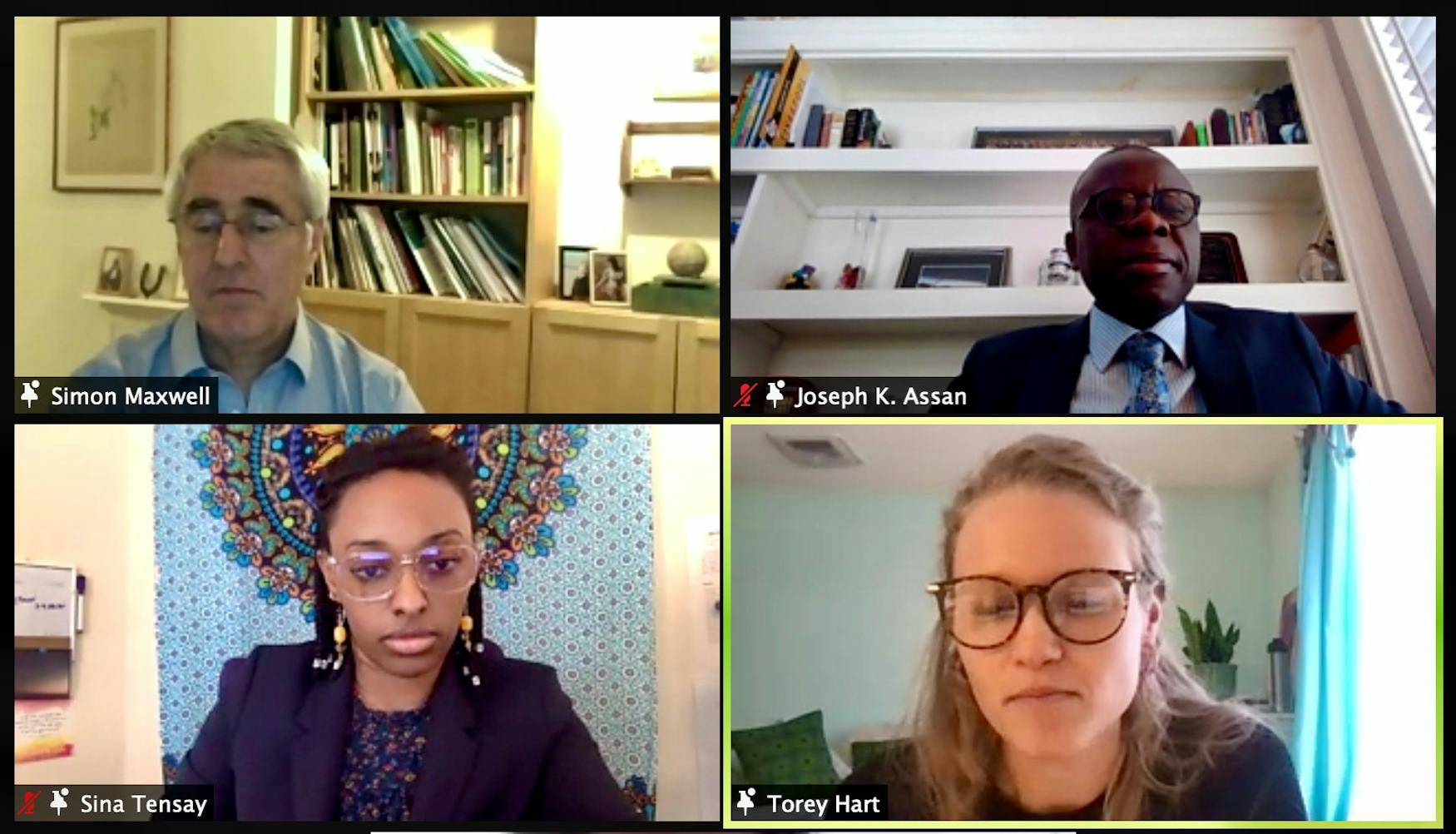Economist Simon Maxwell discusses climate compatible development
Maxwell stressed the importance of transformation and “the losers” in relation to positive development.
Simon Maxwell, a renowned international development economist, spoke to the Brandeis community about climate change and development on Wednesday, Feb. 24 at a virtual event titled “Next Steps in Climate Compatible Development.” This discussion was hosted by the Center for Global Development and Sustainability at the Heller School for Social Policy and Management.
Maxwell began his presentation by asking his audience whether they felt optimistic or pessimistic about the state of global climate change. Although answers were mixed, a slight majority of students responded that they felt pessimistic about the future. Maxwell agreed. “There’s still a lot to do and we have, by no means, reached the end,” he said. He emphasized the importance of taking action in combating climate change and explained how the world can work to achieve this while continuing global development.
“Climate compatible development” is a term used to describe development that continues to advance society while focusing on sustainability and minimizing the harmful impacts of development activities on the environment, Maxwell explained. In projects that meet the climate compatible development criterion, there are three key components: mitigation, adaptation and resilience, and transformation. Maxwell said that while many environmentalists study how to mitigate climate change and adapt to more sustainable ways of living, they often neglect to think about the process of carrying out such measures and overlook the potential negative effects. This is where the concept of “transformation” comes into climate compatible development.
“We’ve become such an integrated economy,” Maxwell said, noting that any global action taken to combat climate change will affect the world in many ways, both good and bad. The United Nations has outlined 17 goals for sustainable development, but Maxwell said the “roadmap” for how these goals will be accomplished is unclear. Therefore, the concept of transformation describes how increasing sustainability will help the climate, and how it will affect the economy, trade, development and communities.
For example, Maxwell suggested that when Margaret Thatcher closed many coal mines in the U.K. in the 1980s, this benefited the environment because emissions from fossil fuels adversely affect the climate. At the same time, however, many coal miners lost their jobs and livelihoods. “It is important to always think about the losers,” he said. “We need to talk about the communities left behind.” Similarly, he explained that countries with developing economies need room to continue developing, despite the fact that doing so will likely increase their greenhouse gas emissions. India, for instance, was the fourth highest emitter of greenhouse gases in 2019, but has been working to further develop its industries and economy, Maxwell said.
In climate compatible development, all situations and their impacts are taken into account, Maxwell said. In cases such as the coal miners, other jobs will need to be made available so no one is left unemployed. Moreover, in order for expanding economies to continue developing while producing carbon emissions, developed economies will have to greatly cut back their own emissions, he explained. However, a Global Green New Deal would solve these issues that arise with a worldwide integrated economy. Such a deal would need to “address the issue of who has the right to emit within limited carbon budgets, and the spill-over effects on one country’s actions on another,” Maxwell shared as an excerpt from his blog. A Global Green New Deal would also help “policymakers consider the full implications of action on climate change: the transition costs, … the lifestyle implications and the impact on losers,” he continued.
That being said, as Maxwell mentioned early in his presentation, significant change is necessary to combat climate change. He shared several graphics depicting the rates of carbon and other greenhouse gas emissions from several countries through the years, showing that the rate of emissions is continuing to increase rapidly. Despite the pandemic, CO2 emissions decreased by only 7% and greenhouse gas emissions are still on an upward trend overall, Maxwell said, noting that the concentration of carbon emissions in the global atmosphere has increased to over 400 ppm.
Moreover, Maxwell measured a few countries’ consumption emissions against territorial — or production — emissions, and found that many countries have a large gap between the amount of CO2 that they emit from consumption versus production, and that consumption emissions are often much higher. According to Maxwell, this situation is “problematic.” This is because the biggest consumers –– and therefore the biggest producers of consumption emissions –– are the people economically within the top 10% of the global population. He cited data about the emissions from China and the United States, as well the combined emissions of the 28 countries of the European Union. In fact, he added, “Emissions of the richest 1% of the global population account for more than twice the combined share of the poorest 50%.”
In considering climate compatible development, these top economic groups must address their own individual consumption and greenhouse gas emissions. Maxwell said that individual behavior can be changed through a process he calls “Shrink, Shift, Shuffle.” According to this model, individuals can “shrink” their emissions by consuming less, “shift” to types of consumption that have lower emission levels and “shuffle” to consuming products of lower emission levels.
Maxwell also noted that changes need to be made at the institutional level, and political leaders should be taking action to change policies and commit to sustainable development. The pledges made by countries at the Paris Climate Agreement, for instance, are not enough to keep global warming to a 2ºC limit. Each country in the agreement would have to increase their emission goal by threefold to reach this limit, and by fivefold to reach the lower 1.5ºC limit, Maxwell explained. “We’re not winning the battle of climate change,” he said, adding that the longer the world waits to combat climate change, the harder it will be to fix the issue.
Maxwell then discussed how to take action to combat climate change. By “bridging” research and policy, he said researchers and policy makers will be able to work together to address each of the important concepts in a model of climate compatible development: mitigation, adaptation and resilience, and transformation. With think tanks and other similar research institutions, he explained how people can build a collaborative network to work on climate research and policy, which is an important part of climate compatible development and a Global Green New Deal.
Returning to his original question about the future of the global climate, Maxwell said, “I’m optimistic in the long term, but I think we have an enormous amount to do before 2030.”




Please note All comments are eligible for publication in The Justice.